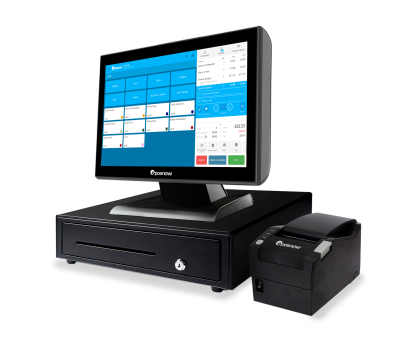The Importance of the Hospitality Industry & Its Four Sectors
Every time you leave your home and visit a business that sells you an experience, you’re probably funding the hospitality industry. It’s a hugely influential portion of any economy that continues to grow annually and accounts for 1 in 10 jobs worldwide[1].
Full-service restaurants alone are responsible for generating over 1.9 trillion NZ dollars every year[2]. Before we dive into some more statistics about this industry and why it’s important, we first look into what exactly the hospitality industry is and the four main sectors that fall under this umbrella term.
The four main hospitality industry sectors
The four main sectors within the hospitality industry are entertainment and recreation, food and beverages, lodging, and travel and tourism. Each of these main sectors have sub-sectors within them:
1 Entertainment and recreation
This includes all businesses dedicated to providing an entertainment service. It covers everything from sporting events, music concerts, art and performance, museums, theme parks, escape rooms, and cultural events.
The entertainment and recreation sector promotes and provides services that enable people to take part in recreational activities for culture, hobby, and educational purposes. It includes established and amateur arts, theatre and music groups, cinema, arcades, and any other outgoing opportunities.
2 Food and beverage (F&B)
The food and beverage industry (F&B) industry is the largest sector within hospitality[3]. This sub-sector includes cafés, restaurants, food trucks, pubs and bars, fast-food drive-throughs, nightclubs, bakeries, tea and coffee shops.
F&B businesses can be sit-in, full-service or take-away. They also go beyond the remit of simply providing food since restaurants compete to provide the best customer experience as well as the best food and drink.
3 Lodging
Businesses within this sector provide accommodation to guests. The lodging industry covers hotels and guest houses of all stripes. Also resorts, b&bs, caravan, mobile and static-home sites, hostels, log cabins, camps, cottages, and chalets.
The role of an accommodation provider is to provide a safe and secure place for tourists to stay. Standards differ between different providers and according to different budgets[4]. There might be some crossover into the food and beverage sector in hotels that include a breakfast buffet, hotel restaurant or bar.
4 Travel and tourism
The fourth sector of hospitality is travel and tourism. It includes travel agents; cruise liners; logistics companies; sightseeing, bus and walking tours; airlines; taxis and car rental companies.
The travel and tourism sector provides means of transportation to move travellers from one place to another. It is an essential middle man that supports tourism and business travel. Public transport for all purposes plays a key role in this vital sector.
When running your hospitality business, it helps to have a till that knows your needs. Epos Now customers benefit from:
- Integrate multiple booking platforms and manage them in one place
- Create your bespoke setup with the latest business software to boost marketing, product, customer and staff management
- Know your business better with hundreds of modifiable, detailed, downloadable reports
- Be supported all the way with an expert team on hand 24/7

Why is the hospitality sector important?
A lot of the services within the hospitality sector are essential to our lives from time to time, especially travel and lodging. We rely on the service industry, yet the true nature of hospitality goes beyond simply providing these services.
The truth within the name
The word hospitality derives from the Latin “hospitalitas”, which means ‘friendliness to guests’, from the nominative “hospes”, meaning ‘guest; host’[5].
Therefore we know that it’s not just about what you do, but how you do it. People working in hospitality understand that when guests visit a restaurant they expect more than a meal. Customers expect a positive greeting, friendly, attentive service, and a nicely decorated venue. These things collectively contribute to an overall positive hospitality experience.
Improved customer retention
Happy customers are loyal customers. A great guest experience relies on focus, consideration, and the fulfilment of customers’ needs. This begins with using your initiative and being proactive enough to recognise when a guest might need something and providing it before they ask.
Any restaurant can provide guests with their food – that’s the basic prerequisite of dining out. It’s the unexpected actions you take that will make your restaurant stand out in the minds of guests. Going above and beyond to make guests feel welcome and cared for is the key to good customer retention and loyalty.

Great brand reputation
72% of customers will tell six or more people if they have a satisfying experience[6]. And, since word-of-mouth recommendations are five times more effective than paid advertisements[7], we see how important good hospitality really is. These statistics demonstrate that customer satisfaction can drive new levels of growth and prosperity for hospitality businesses.
It’s the cheapest and most rewarding form of advertising that also contributes massively to how your brand is perceived. How customers perceive your brand is vital for attracting your desired customers, solidifying customer relationships, and increasing your financial value as a business.
Rewarding industry to work in
For the most part, people who are dedicated to a career in hospitality want to provide excellent customer service. It’s different from the typical 9-5 office job that revolves around creating spreadsheets and presentations. A key responsibility in hospitality jobs is to interact with new people and make their day.
It’s a rewarding entry-level position for young professionals who are people-orientated and want to learn transferable life skills. Hospitality implies warmth, respect, and even protection; it builds understanding and appreciation among cultures. It’s also one of the most dynamic, exciting, and fast-growing sectors to work in. With every new development in technology or guest experience, even more diverse and specialized job opportunities can open up[8].
Lasting impact and memories for guests
People rely on the hospitality industry to fulfil their basic needs of transport, accommodation, food, and entertainment for work and recreational purposes. Given that some people will often visit dozens of hotels a year, good hospitality makes all the difference between a survivable experience and a pleasant, memorable one.
Small touches like providing high-quality amenities providing an effective, simplified service will demonstrate that your business is reliable and dedicated to the needs of the customer. Comfort and consideration go a long way for people who rely on your industry daily.
Choose an industry-leading POS provider
Point of sale (POS) systems work as the backbone of hospitality businesses. Designed to work as a complete business management system, you can control all vital aspects of your company from one cloud-based system.
Receive detailed analysis on the areas that matter to your business:
- Customer management systems that save customer contact details and shopping preferences for more targeted marketing.
- Add-on customer booking services for streamlined operations.
- Hospitality management at your fingertips for remote cloud access.
- Integrations with over 100 apps including marketing, accounting, bookkeeping, and loyalty program apps.
- Employee management for more efficient scheduling and payroll.
To find out more about a hospitality system with every tool you need, submit your information below and speak to a member of our expert team.
Speak with one of our experts and learn more about Epos Now's top-selling hospitality technology



